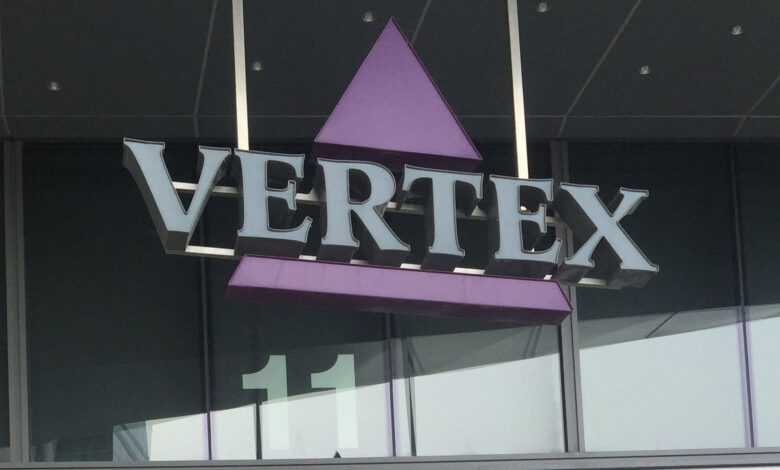
Blockbuster helps Vertex develop promising medicines
For many years, Biotech Vertex Pharmaceuticals Incorporated (VRTX) has been the owner of the exclusive rights to the drug to treat cystic fibrosis. Sales of this advanced and effective medicine help the company get money that can in fresh developments.
The FDA approved the Vertex Pharmaceuticals’ Kalydeco drug ten years ago. Since then, it has become the standard of treatment for cystic fibrosis and helps thousands of patients improve their quality of life and increase life expectancy. Kalydeco was the first drug to treat cystic fibrosis aimed at the root cause of the disease — the protein responsible for balancing the concentration of salt and water in the respiratory tract. Later, Vertex Pharmaceuticals added other cystic fibrosis drugs to its portfolio that can help most patients around the world.
Currently, Vertex Pharmaceuticals’ best drug, Trikafta, contains the active ingredient Kalydeco plus two new drugs. Vertex Pharmaceuticals’ patent protection is valid until at least 2037, and the company has no competitors in therapy. Last year, sales of drugs to treat cystic fibrosis brought Vertex Pharmaceuticals about $7.6 billion, which is 22% more year-on-year. Vertex Pharmaceuticals invests the money received from the sale of cystic fibrosis drugs in recent developments.
One of them is the innovative painkiller VX-548. This is a non-opioid remedy for pain relief, the annual income from which can amount to billions of dollars. Candidate VX-548 may become the first in its class inhibitor of NaV 1.8, a protein on the surface of nerve cells that is partially responsible for transmitting pain signals to the brain. In a study involving patients undergoing tummy tuck surgery, treatment with VX-548 resulted in a significant reduction in pain. It even surpassed Vicodin, an addictive opioid that is often prescribed after surgery.
Another promising development of Vertex Pharmaceuticals is stem cell therapy for patients with early type 1 diabetes mellitus. The company is working on a ready-made VX-880 stem cell therapy designed to replace damaged islet cells. So far, the drug trials are not mass–only one patient with the inability to produce insulin received treatment. After taking half of the target dose of the drug, the patient’s body could produce enough insulin to reduce dependence on insulin injections from 34 units per day at the beginning of the study to only 2.9 units per day after treatment.
If Vertex Pharmaceuticals can prove the effectiveness of its therapy and solve the problem with the acceptance of these new cells by the body, VX-880 could start generating an annual revenue of more than $1 billion in a couple of years after launch.
Thus, currently Vertex Pharmaceuticals will continue to earn on its cystic fibrosis drugs, but the company is expanding its portfolio with new therapies that have blockbuster potential.